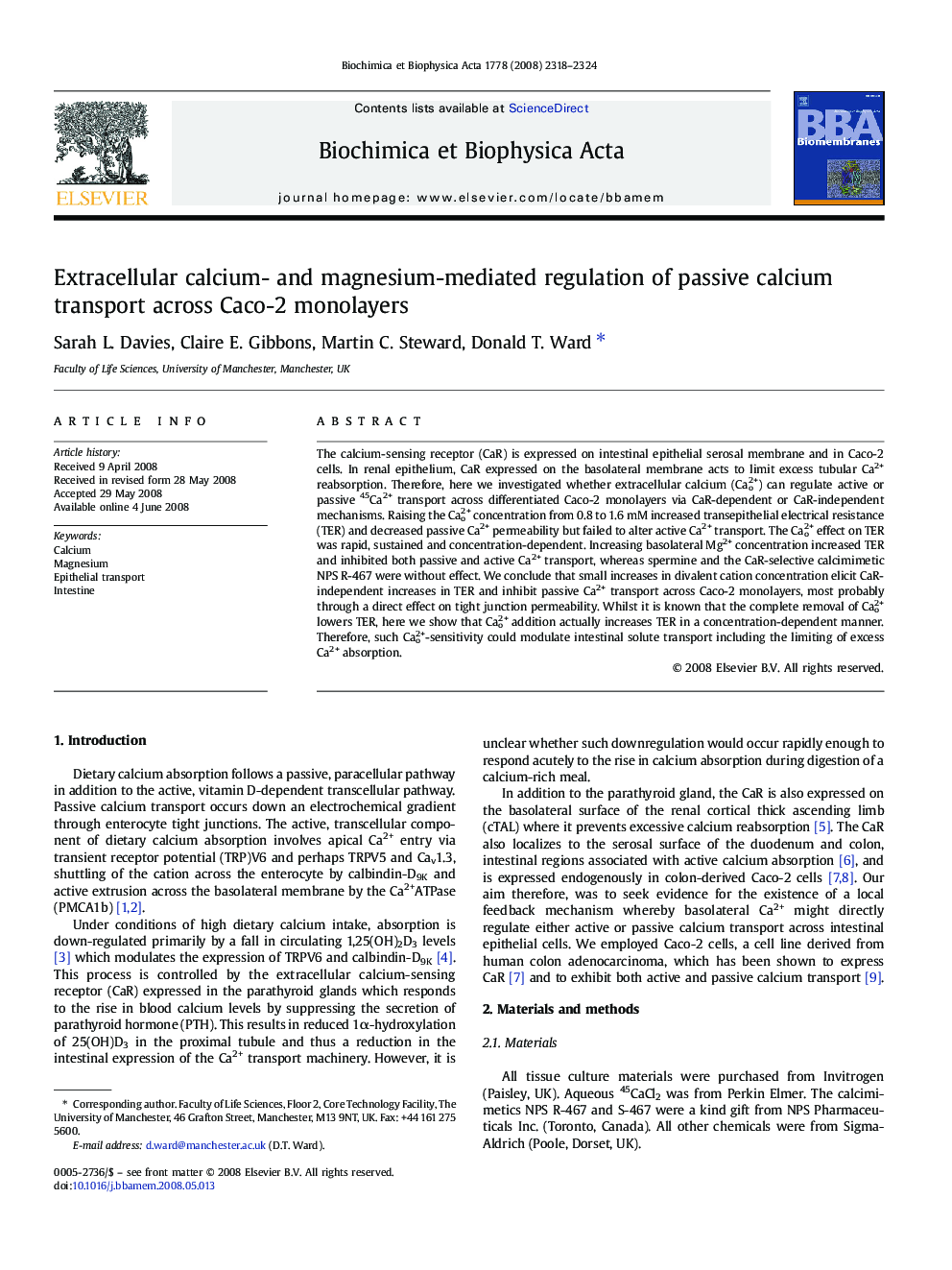| Article ID | Journal | Published Year | Pages | File Type |
|---|---|---|---|---|
| 1945471 | Biochimica et Biophysica Acta (BBA) - Biomembranes | 2008 | 7 Pages |
The calcium-sensing receptor (CaR) is expressed on intestinal epithelial serosal membrane and in Caco-2 cells. In renal epithelium, CaR expressed on the basolateral membrane acts to limit excess tubular Ca2+ reabsorption. Therefore, here we investigated whether extracellular calcium (Cao2+) can regulate active or passive 45Ca2+ transport across differentiated Caco-2 monolayers via CaR-dependent or CaR-independent mechanisms. Raising the Cao2+ concentration from 0.8 to 1.6 mM increased transepithelial electrical resistance (TER) and decreased passive Ca2+ permeability but failed to alter active Ca2+ transport. The Cao2+ effect on TER was rapid, sustained and concentration-dependent. Increasing basolateral Mg2+ concentration increased TER and inhibited both passive and active Ca2+ transport, whereas spermine and the CaR-selective calcimimetic NPS R-467 were without effect. We conclude that small increases in divalent cation concentration elicit CaR-independent increases in TER and inhibit passive Ca2+ transport across Caco-2 monolayers, most probably through a direct effect on tight junction permeability. Whilst it is known that the complete removal of Cao2+ lowers TER, here we show that Cao2+ addition actually increases TER in a concentration-dependent manner. Therefore, such Cao2+-sensitivity could modulate intestinal solute transport including the limiting of excess Ca2+ absorption.
